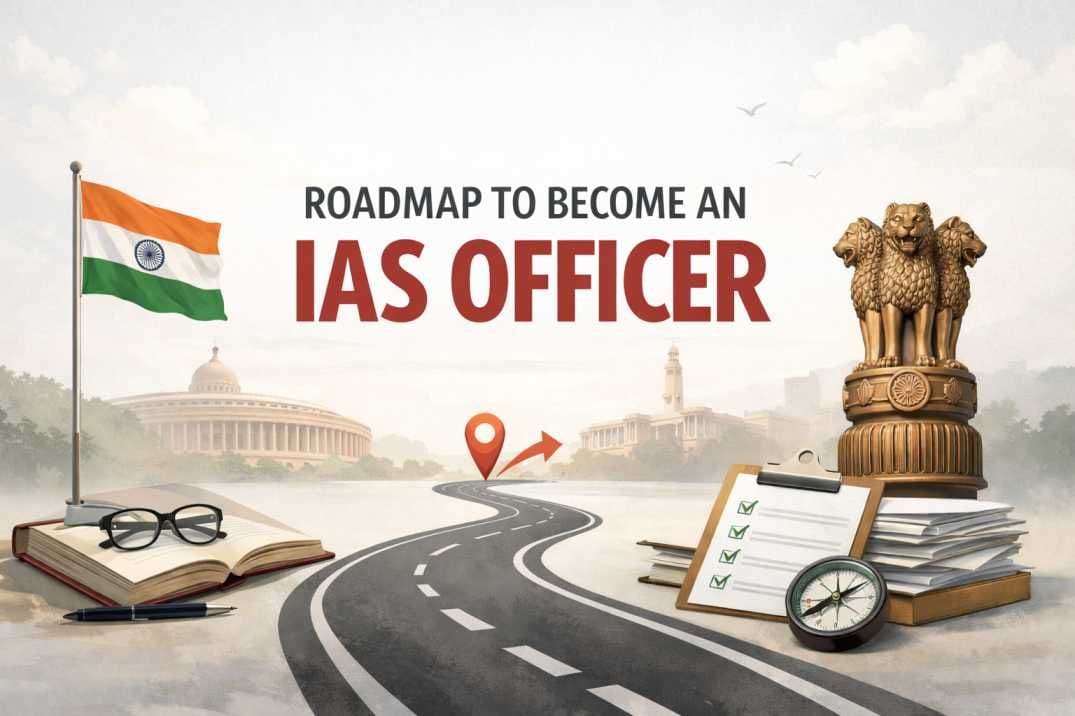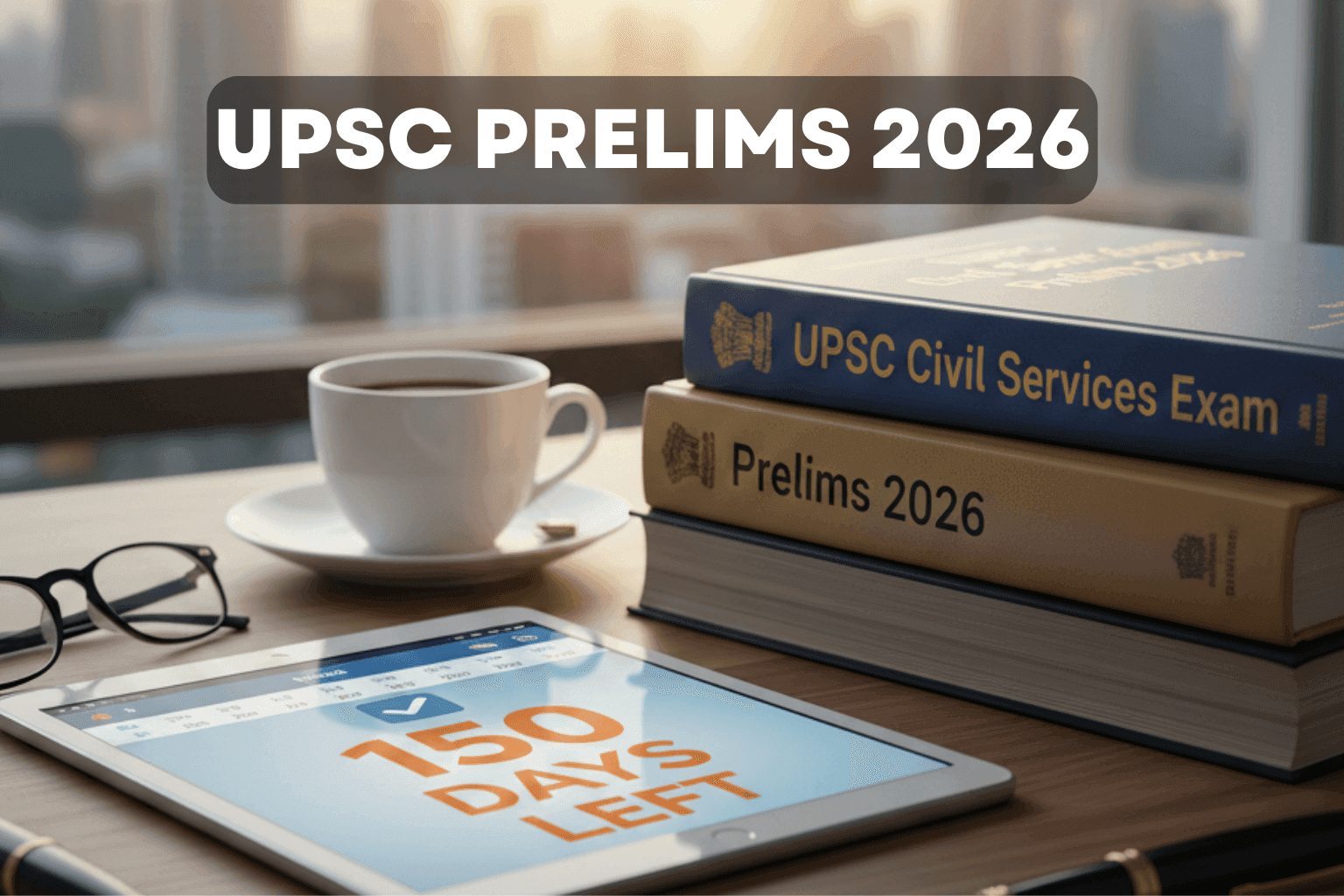Approaching Science and Technology Preparation for UPSC
Feb, 2025
•7 min read
If you're gearing up for the UPSC exam, you've probably asked yourself: How do I prepare science and technology for UPSC in a way that can enhance my score?
Well, science and technology often get ignored while preparing for other subjects for UPSC. But here's something you might not have considered: Science & Technology questions have been popping up more frequently in both Prelims and Mains in recent years. It’s not by chance—it’s a clear signal from UPSC about the growing importance of this field.
Think about it: topics like space missions, nanotechnology, biotechnology, and digital innovation are at the forefront of global discussions. These aren’t just isolated facts—they’re interconnected with governance, economy, and even international relations. Ignoring science & technology in your preparation is like leaving a major piece of the puzzle out.
So, instead of sidelining this subject, what if you made it one of your strengths? By doing so, you’re not only preparing for the expected but also equipping yourself to handle the unexpected twists that UPSC loves to throw at aspirants.
Want to equip yourself with strategic approaches that make preparing science and technology for UPSC not only manageable but also impactful? Let’s explore the strategies that will help you do just that!
Understanding the Syllabus and Exam Pattern of Science & Technology
Understanding the syllabus and exam pattern for science and technology is your first step toward mastering this subject. Knowing exactly what the exam expects can turn a challenging subject into an opportunity to score big.
Let's break it down:
Prelims Syllabus
In the Prelims, science and technology questions come under General Science. This includes:
- Basic principles of Physics, Chemistry, Biology
- Latest technological developments
- Current events from Science & Technology
The questions are designed to test your awareness and understanding of how these scientific principles apply to real-world situations.
Mains Syllabus
When you move to the Mains, science, and technology take center stage in General Studies Paper III. Here, the focus is on:
- Technology
- Economic development
- Achievements in Science & Technology
- Latest discoveries in Science & Technology
You’ll need to analyze and explain how scientific advancements impact the economy, society, and even governance. This section isn’t just about what you know but how you can apply that knowledge to solve problems, propose solutions, and critically evaluate technological progress.
With this clear roadmap, you can tailor your preparation to hit the right targets, ensuring that you’re not just prepared—but well-prepared—for what’s to come.
Cover All KEY terms in Science and Tech in One Video | UPSC Prelims 2024/25 | SuperKalam
Key Areas in Science and Technology Preparation for UPSC
Now that you have a solid understanding of the syllabus and exam pattern, it’s time to zero in on the core areas that will give you the edge in science and technology. By focusing on these specific topics, you'll ensure that you're not just skimming the surface but truly mastering the topics that matter most.
Let's dive into the essential areas you should prioritize:
General Science Concepts
A strong foundation in Physics, Chemistry, and Biology is crucial for tackling both Prelims and Mains questions. Here are the core topics:
|
Physics |
Chemistry |
Biology |
|
|
|
Latest Technologies
The UPSC examiners love to test your awareness of cutting-edge technologies shaping the world.
Make sure you’re up-to-date with advancements in areas like:
- Artificial Intelligence (AI)
- Machine Learning
- Blockchain
- Nanotechnology
- Biotechnology
Space Science
India’s space program, led by ISRO, is a source of national pride and international interest. Focus on key missions like Chandrayaan, Mangalyaan, and Gaganyaan, satellite launches, and collaborations with other countries. They’re examples of how science and technology drive national progress and global partnerships. Moreover, knowing the details of these missions can help you answer questions related to both science and economic development.
Defense Technology
Defense technology is another crucial area that can significantly impact your performance in the UPSC exam. Let’s explore the topics:
- Indigenous defense initiatives of India and key projects like the Tejas fighter jet, INS Arihant, and the Agni and Prithvi missile series.
- Get familiar with India’s missile defense systems like the Ballistic Missile Defense (BMD) program, Akash missile system, etc
- Technologies like cyber defense systems, network security, and data protection are integrated into national security.
Energy Sector
The UPSC increasingly focuses on how India is harnessing its energy resources. Here are the key areas you should concentrate on:
- Major developments in renewable energy such as India’s ambitious National Solar Mission.
- Government initiatives for renewable energy.
- The role of renewable energy in reducing carbon footprints
- Sustainable development and Environmental conservation.
- Basics of nuclear technology and its applications
- Challenges in nuclear energy
- Recent debates around current major projects.
Confused about any term in the Sci. & Tech. syllabus? Just ask it and SuperKalam AI will explain it in the simplest words. You can even try different prompts to make it more customized for yourself.
Strategic Preparation Approach for Science and Technology in UPSC
"Success is where preparation and opportunity meet." — Bobby Unser
Now that we’ve explored the core areas of the syllabus, it’s time to talk strategy. You need to develop a deeper understanding of the subject and use the right resources to build a solid foundation. So, how do you ensure that your preparation is both comprehensive and effective with the right resources?
Building a Strong Foundation with NCERT Books
Your first step should be to strengthen your basics. Start with NCERT books. A solid understanding of the NCERTs will make it easier to tackle more advanced material later on. Here’s a list:
|
Subjects |
Books |
|
Science & Technology |
General Science:
Advanced Topics:
|
Remember, don’t skip the basics—they’re your foundation for tackling more complex questions.
Tip: As you read through the NCERT books, create quick revision notes for each chapter, focusing on core concepts, important diagrams, and any recurring themes.
Also Read: NCERT Books Required for UPSC Exam Preparation
Staying Updated with Current News
While preparing for science and technology for UPSC, staying updated with current affairs is essential. They form an important part of both the Prelims and Mains examinations as most of the questions require knowledge of the latest developments.
- Make it a habit to follow reliable newspapers like The Hindu or Indian Express, especially their science and technology sections.
- Use trustworthy sources like PIB (Press Information Bureau) for government releases and updates.
- Use Government Websites and Reports like ISRO, DRDO, and the Ministry of Science and Technology. They provide detailed reports, updates on recent developments, and explanations of various technologies.
Also Watch: How to cover Current Affairs for UPSC 2025/26 | A Complete Guide | SuperKalam
Monthly Magazines for Wide Coverage
Monthly magazines like the Yojana and the Kurukshetra offer in-depth articles on the latest scientific discoveries and technological advancements, written by experts in the field. It’s a great way to enhance your understanding of complex topics and to see how theoretical concepts are applied in real-world scenarios.
Bonus Tip: While reading monthly magazines, cross-reference the topics covered with questions from previous years' UPSC exams. This will help you identify patterns in the types of questions asked.
By following this strategic approach, you’ll not only cover the breadth of the science and technology syllabus but also develop a deeper understanding of the subject.
Additional Tips for Preparing Science & Technology for UPSC
Well, going beyond textbooks can make a significant difference in your preparation. Here are some tips to enhance your science and technology preparation for UPSC:
- Make Short Synopsis
Create concise and targeted notes for quick revisions. Focus on capturing essential points, especially for current developments and key concepts. Want to make short notes on Biotechnology? SuperKalam can generate it for you in seconds saving you the trouble of going through multiple resources.
- Use Diagrams and Flowcharts
Visual aids like diagrams and flowcharts can simplify complex processes. For instance, drawing a flowchart on the process of cellular respiration or using diagrams to understand the nuclear fuel cycle can make these concepts easier to grasp and recall.
- Use Online Resources
SuperKalam is a personal mentor at your fingertips—offering a structured study plan, expert guidance, and a supportive community. Dive into discussions on SuperKalam’s telegram channel to gain insights that can boost your preparation strategy.
- Watch Science Programs
Watching documentaries and programs on Discovery and National Geographic can offer a more engaging way to learn about new technologies and scientific advancements. These visual resources can help you understand practical applications and real-world scenarios related to the syllabus.
- Attend Workshops/Seminars
Whenever possible, attend workshops or seminars by toppers or experts related to science and technology. These events often provide practical insights and the latest updates, which can supplement your textbook learning with real-world applications.
- Practice Previous Year Questions
Regularly practicing previous years' questions can familiarize you with the question patterns and help in time management. Also, watch this video to learn How To Study PYQs for UPSC Prelims | UPSC CSE 2025/26.
Keep these strategies in mind and see your understanding and performance soar! Let’s continue building that momentum!
Conclusion
Preparing Science and Technology for the UPSC exam is all about combining basic concepts with current developments. It’s like building a strong foundation while also keeping an eye on the future. Understanding the fundamentals prepares you for any question while staying updated on recent developments, which helps you apply that knowledge effectively.
Consistency and strategy are your best allies in this journey. Make a habit of regular revision, and ensure that your study is aligned with the exam pattern. Actively apply what you learn. It’s all about blending effort with smart study techniques.
Looking for a boost in your preparation?
Join SuperKalam today for expert guidance, a supportive community, and interactive resources to make your UPSC journey smoother. We create personalized UPSC strategies to boost your score. Ready to master the science and technology section with the perfect mentor by your side?
Beyond this- SuperKalam offers daily news analysis, practice MCQs, and feedback on your written answers.
Join SuperKalam now and supercharge your preparation!
Also worth watching: The Inspiring Story of Aspirants | Aspirants Anthem | SuperKalam


